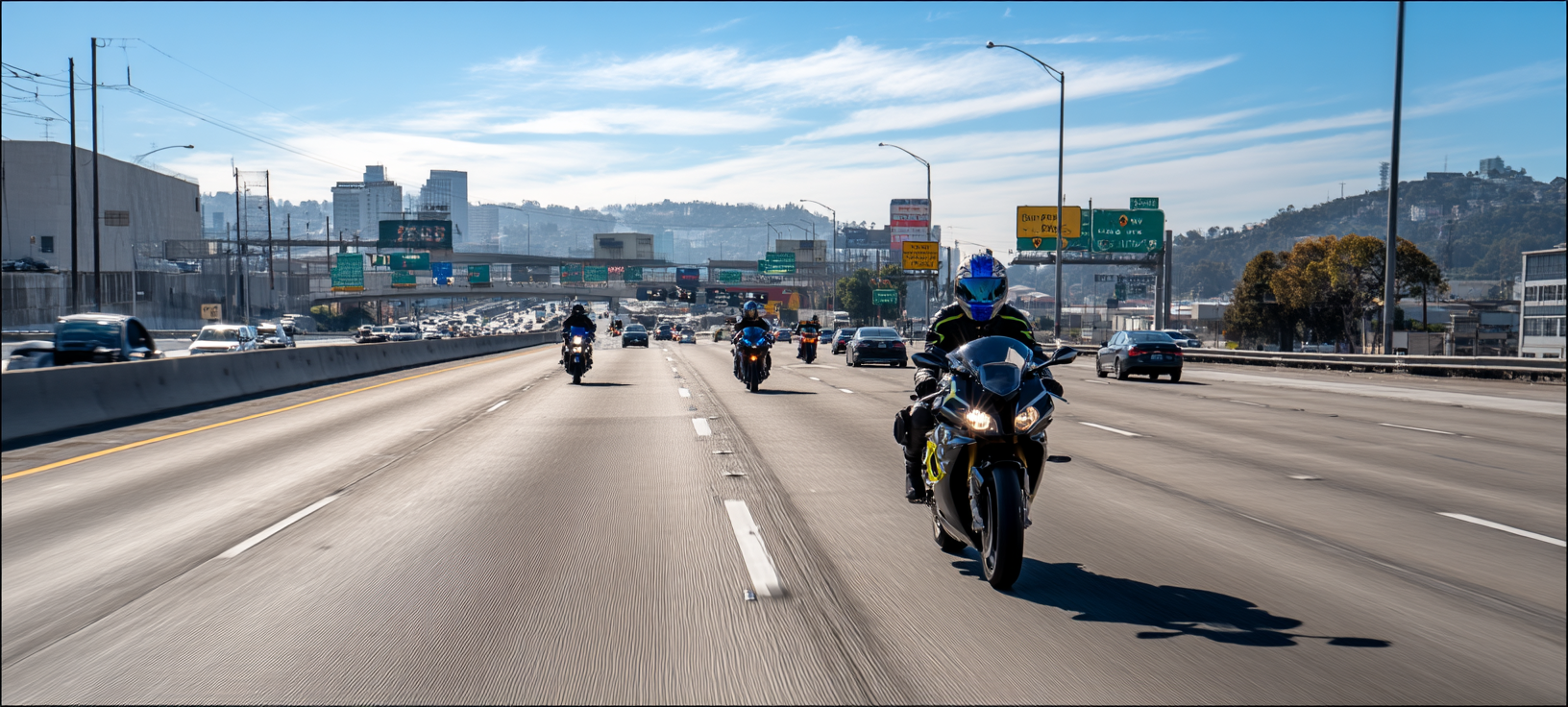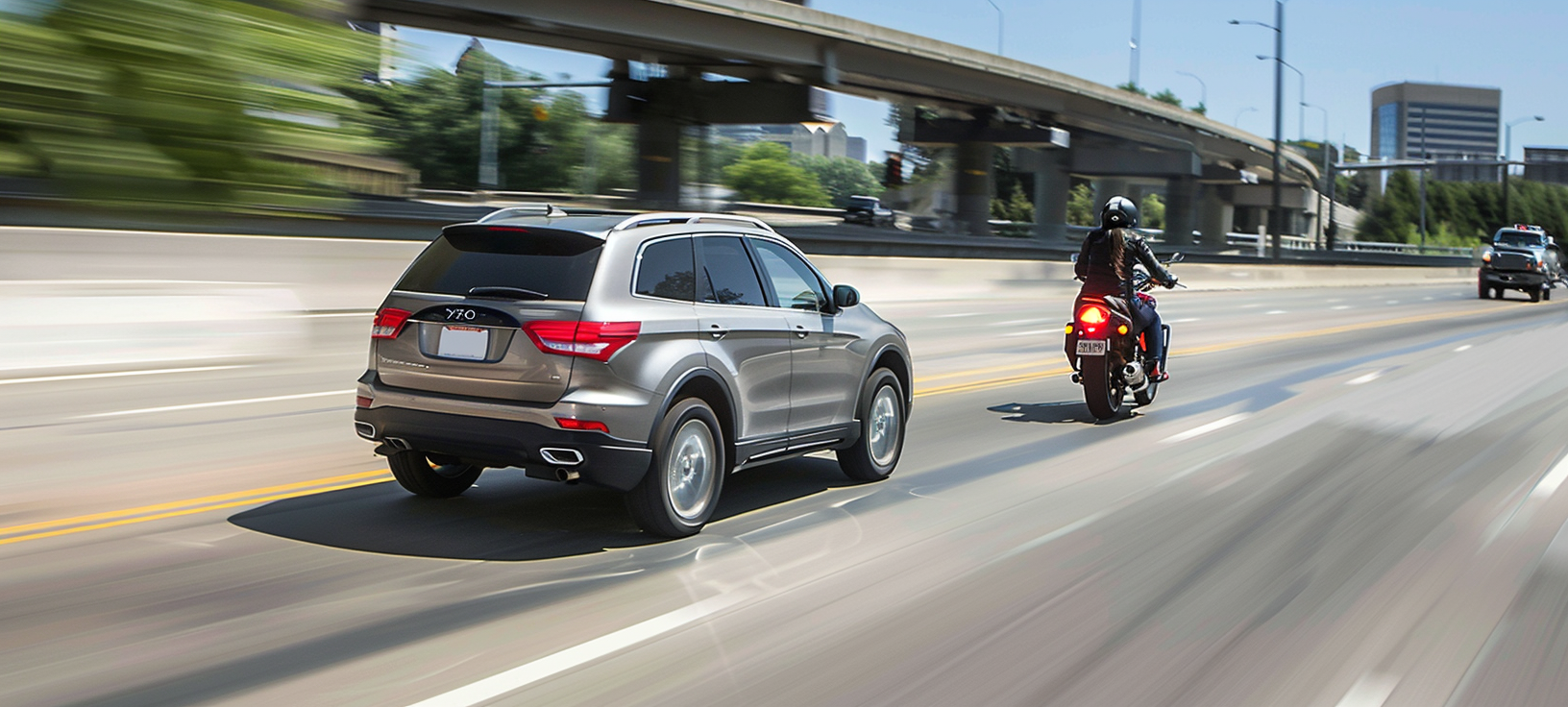The image of the reckless, intoxicated biker is deeply ingrained in popular culture. However, recent data challenges this stereotype. According to the National Safety Council’s analysis of NHTSA data, 72% of motorcycle operators involved in fatal crashes were NOT alcohol-impaired [1]. This statistic contradicts common misconceptions about motorcycle accidents and highlights the need to examine other factors contributing to rider fatalities.
Debunking the Myth: Alcohol and Motorcycle Accidents
The 72% statistic shatters the “drunk biker” stereotype perpetuated for decades. It reveals that the vast majority of riders involved in fatal incidents were sober, challenging public perception and the approach often taken by law enforcement and the legal system in motorcycle accidents.
The Real Culprits: Car Drivers and Their Behaviors
If alcohol isn’t the primary factor, what’s causing these accidents? Often, the danger comes from other vehicles on the road. Here are some common ways car drivers put motorcyclists at risk:
Distracted Driving
Distracted driving has reached significant levels in the age of smartphones. Activities such as texting, adjusting GPS, eating, or changing radio stations divert drivers’ attention from the road. These distractions are particularly dangerous for motorcyclists, as a moment’s inattention can have severe consequences.
Failure to See Motorcycles
The “looked but failed to see” phenomenon is alarmingly common in motorcycle accidents. Modern car design, focused on reducing blind spots for other cars, can sometimes make motorcycles harder to spot. “Inattentional blindness,” where drivers don’t register motorcycles because they’re not actively looking for them, also contributes to this issue.
Misjudging Motorcycle Speed and Distance
Car drivers often misjudge a motorcycle’s approach speed or distance. The unique profile of a motorcycle can make it challenging for drivers to accurately gauge these factors, leading to dangerous situations, particularly during turns or lane changes.
Failure to Yield Right of Way
Failure to yield right of way to motorcycles is a significant cause of accidents. This occurs at intersections, during merging, and in various other scenarios, often with severe consequences for riders.
Unsafe Lane Changes
Sudden lane changes by car drivers pose a significant threat to motorcyclists. Drivers who fail to properly check their blind spots or signal their intentions leave riders with little time to react.

Environmental Factors: Additional Risks
Road conditions present unique challenges for motorcyclists. Potholes, uneven surfaces, and road debris pose greater risks for two-wheeled vehicles compared to cars. The National Safety Council reports that 84% of motorcycle fatalities occurred in clear or cloudy conditions, highlighting that even in good weather, environmental factors play a role in motorcycle safety [1].
Legal Implications for Riders
Despite laws designed to protect motorcyclists, riders often face unique legal challenges. Insurance companies and law enforcement may make assumptions about rider fault, even when evidence suggests otherwise. Knowledgeable legal representation that understands the specific issues facing the motorcycle community is essential in these situations.
Breaking the Stereotype: Media’s Role in Perception
Media portrayal significantly influences public perception of motorcyclists. News coverage that sensationalizes motorcycle accidents and Hollywood’s depiction of the “outlaw biker” shape public opinion in powerful ways. Changing these narratives is crucial for rider safety, as a more accurate understanding of the challenges faced by motorcyclists can lead to improved safety measures and policies.
The Road Ahead: Changing Perceptions, Saving Lives
The statistic that 72% of motorcycle operators involved in fatal crashes were not alcohol-impaired calls for a shift in the conversation about rider safety. Increased awareness among car drivers about sharing the road with motorcycles is necessary. Improved driver training, stricter penalties for distracted driving, and infrastructure improvements that consider two-wheeled vehicles are all critical steps.
Riders can contribute by sharing accurate information and challenging assumptions. Being an ambassador for responsible riding can help change perceptions and improve safety for all motorcyclists.
Full Throttle Law: Advocates for Riders’ Rights
At Full Throttle Law, our team combines legal expertise with firsthand experience as riders. We have extensive experience advocating for riders’ rights and handling motorcycle accident cases. Our approach cuts through stereotypes to focus on the facts of each case.
If you’ve been involved in an accident or have questions about your rights as a rider, contact us. We’re committed to ensuring fair treatment and representation for motorcyclists. The majority of riders are responsible road users, and you deserve legal representation that recognizes and respects this fact.
Ride safe, stay vigilant, and always stand up for your rights on the road. The team at Full Throttle Law is here to support you.
Sources:
[1] National Safety Council. (2024). Motorcycles. Injury Facts. https://injuryfacts.nsc.org/motor-vehicle/road-users/motorcycles/






